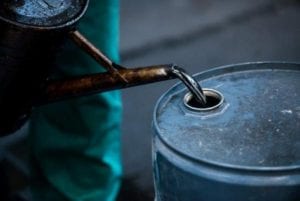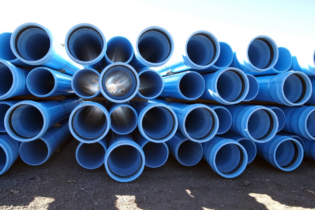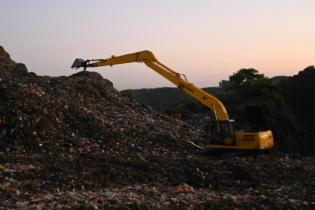With World Environment Day taking place on Wednesday 5 June, protecting ecosystems from pollution has taken center stage.
Used lubricating oil and grease is a hazardous waste that if dumped down drains or poured onto the ground, can contaminate water resources. The ROSE Foundation (Recycling Oil Saves the Environment) is calling on all South Africans to store and recycle used oil responsibly, in order to protect the environment. Used oil is drained from machinery, engines, gearboxes, hydraulic systems, turbines and air compressors. Because of this, it is usually contaminated with many hazardous organic molecules, which arise from the breakdown, decomposition and deterioration of additives and base oils during use. Used Oil contains harmful carcinogens and compounds as well as metals such as iron, tin, zinc and copper that can easily contaminate the environment.One litre of used oil can contaminate a million litres of water
The ROSE Foundation has been championing the responsible collection and removal of used oil for recycling for 25 years. Bubele Nyiba, the CEO of ROSE explains that due to a lack of education, many South Africans who generate used oil may dispose of it improperly and illegally – pouring it down drains, throwing it out onto the ground, or even re-using it as a dust suppressant, burner fuel, or wood preservative.“It is estimated that South Africa generates an average of 120 million litres of used lubricant oil in a year. This is a large amount of used oil that, if not collected and recycled responsibly, could make its way into our environment.”
The ROSE Foundation has been driving recycling on behalf of the lubricants industry in an effort to keep used oil out of the environment. Nyiba says they have been successful but more needs to be done. “We have recycled 1,5 billion litres of used oil over the last 25 years – that’s a massive amount that could have ended up in our ground water.”The ROSE Foundation offer some practical tips on what to do with used oil:
- Drain oil into a clean container with a tight fitting lid, such as a reusable combination drain pan/storage container.
- Empty oil containers and drums make effective makeshift storage vessels for used oil, however, DO NOT use a container that previously held chemicals, such as cleaners, solvents, fuels, paint or bleach.
- Always clearly label the container “Used Motor Oil.”
- The ROSE Foundation can subsidize cubic-shaped 1000 litre mini tank which make maximum use of available space, hold more oil and to make things even easier, the collections require no handling of the containers. Sealed couplings are used to pump the contents straight into a tanker truck so there’s no spillage or leakage.
- Keep these containers in a place that can be accessed by a ROSE registered used oil collector and keep the surrounding area clear and clean. Ideally store them under cover and away from heat or sources of ignition.
- Keep oil change pans free of water and ensure your storage containers are tightly sealed and covered to protect them from rain water. Oil that is contaminated with water is far more difficult to recycle.
- Ensure that you do not mix used oil with other fluids such as antifreeze, transmission fluid, petrol, diesel etc. Mixing them may make them non-recyclable as well as very hazardous and flammable.
- Build a bund wall around bulk used oil storage tanks so that in the event of a spill or leak, the used oil will be contained. In the event of an oil spill, contact your used oil collector.






